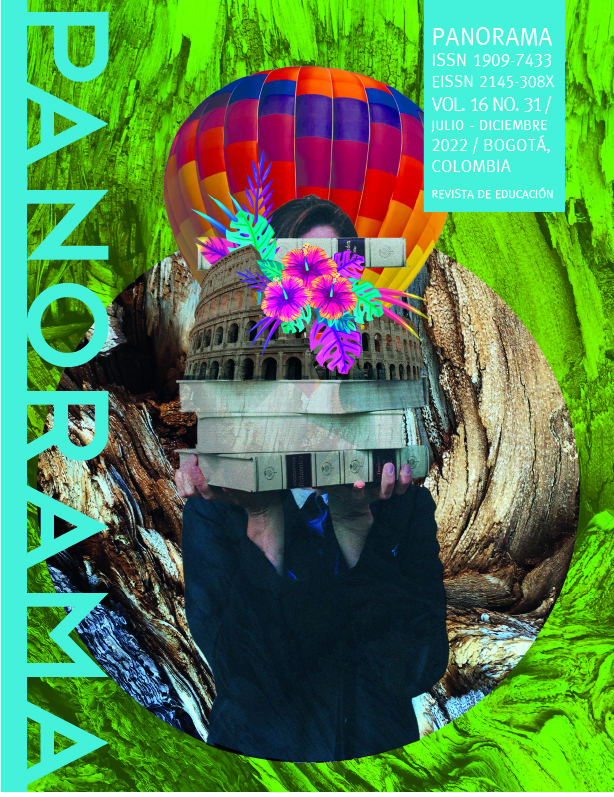Abstract
This document describes the pedagogical experience based on dramatised reading with eleventh grade students, which arose through the remote education generated by the pandemic during the year 2020. This proposal is framed within the desire to generate an interdisciplinary work that would allow both students and teachers to create spaces for discussion with a common purpose: the reading of the literary work "Blindness". The following categories are addressed: interdisciplinarity, reading comprehension, critical thinking and literary enjoyment. The systematisation follows the methodological path proposed by Jara (2018) who invites us to carry it out in five moments: starting point, systematisation plan, recovery of the lived process, reflections and points of arrival. The findings obtained put our experience into dialogue in the light of the theoretical constructs, in order to finally reflect on the teaching task and the opportunities in the construction of new ways of understanding and relating to the literary world.
References
Cassany. D. (2003). Aproximaciones a la lectura crítica: teoría, ejemplos y reflexiones. Tarbiya: revista de investigación e innovación educativa, (32), 113-132, Disponible en: file:///C:/Users/Sol%20Estrada/Desktop/archivoPDF.pdf
Colomer, T. (2005). Andar entre libros. México, D.F: Fondo de Cultura Económica.
Fisher, A. (2001). Critical thinking: An introduction. New York: Cambridge University Press.
Freire, P. (1978) Cartas à Guiné-Bissau. Registros de uma experiência em processo. Rio de Janeiro: Paz e Terra.
Hauy, M. E. (2014). Lectura literaria: aportes para una didáctica de la literatura. Zona Próxima (20), 20-34. Acceso: 12/02/2020. Disponible en: Disponible en: https://www.redalyc.org/pdf/853/85331022003.pdf
Hernández Sampieri, R., Fernández Collado, C., & Baptista Lucio, P. (2014). Metodología de la investigación (6a. ed. --.). México D.F.: McGraw-Hill.
Jara, O. (2018). La sistematización de experiencias: práctica y teoría para otros mundos posibles. Bogotá: CINDE
Medina, F. (2020). La radionovela y el folletín. Revista Universidad Pontificia Bolivariana, 47(145), 89-104. Recuperado a partir de https://revistas.upb.edu.co/index.php/upb/article/view/2020
Morín, E. (1999) Los siete saberes necesarios para la educación del futuro. 1ª Ed., UNESCO, París, Francia. Recuperado de: http://www.ideassonline.org/public/pdf/LosSieteSaberesNecesariosParaLaEdudelFuturo.pdf.

This work is licensed under a Creative Commons Attribution-NonCommercial-NoDerivatives 4.0 International License.





